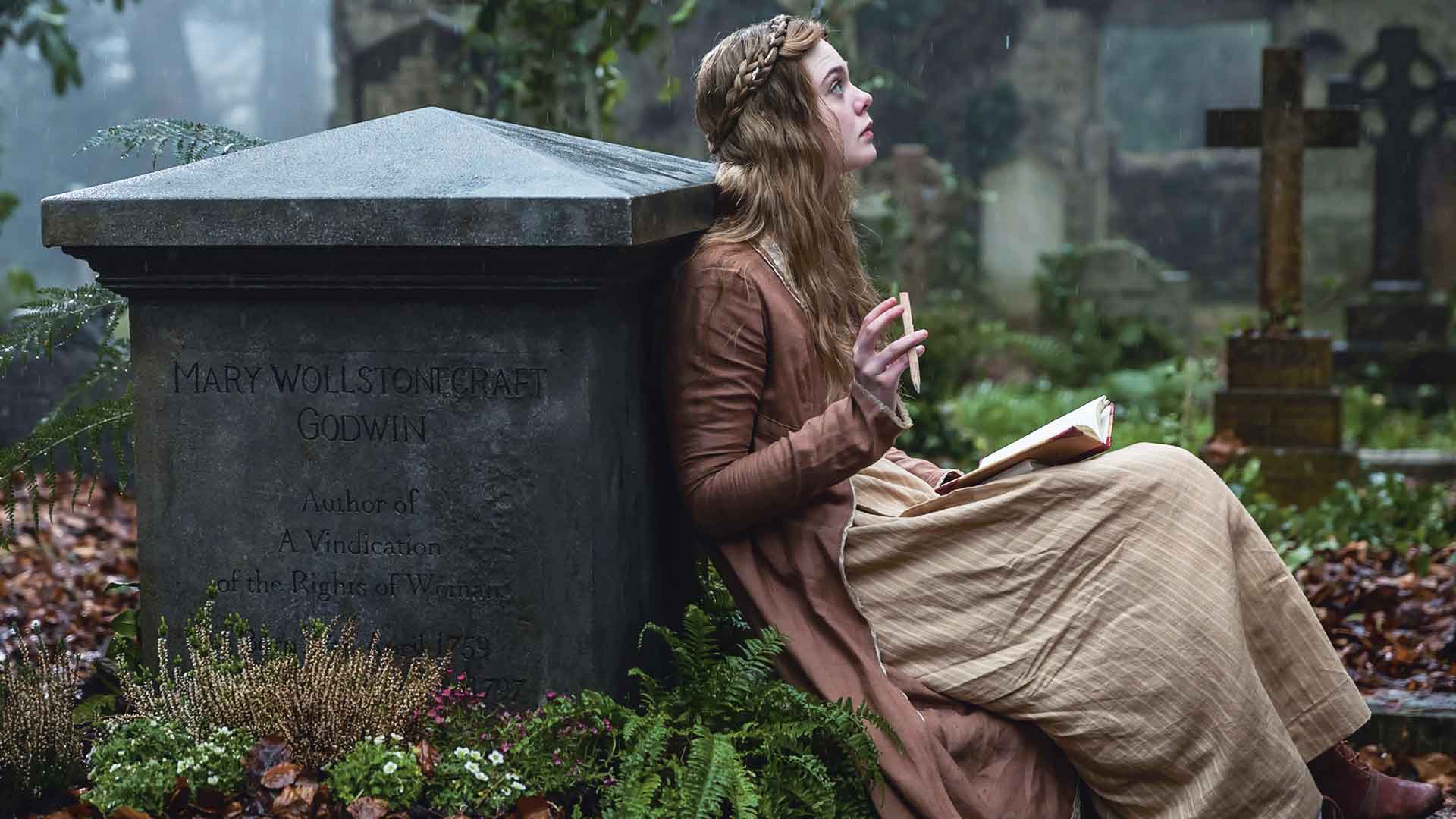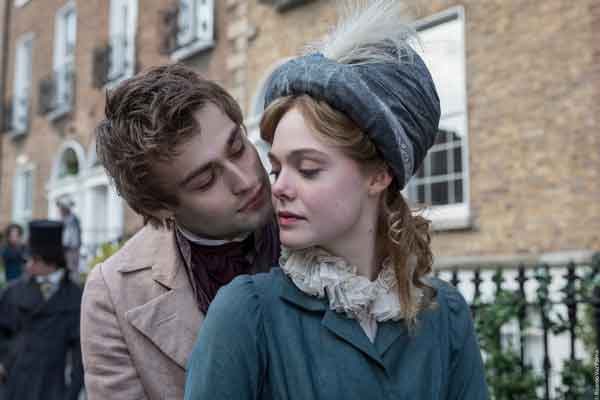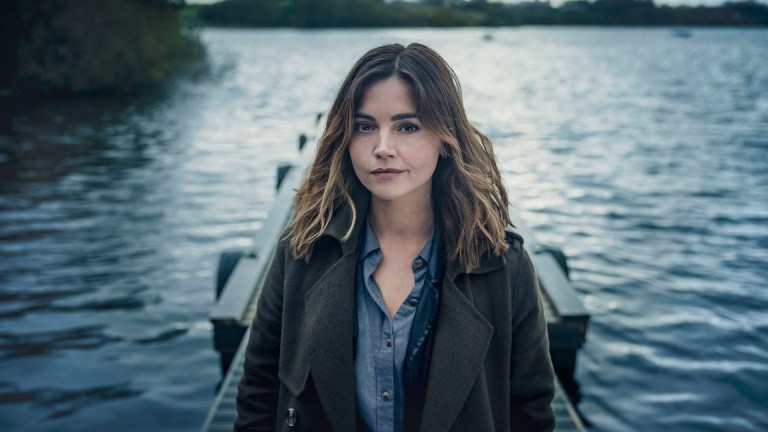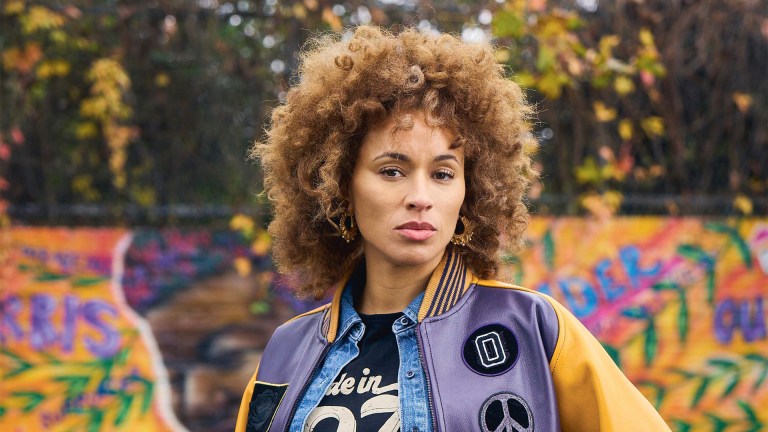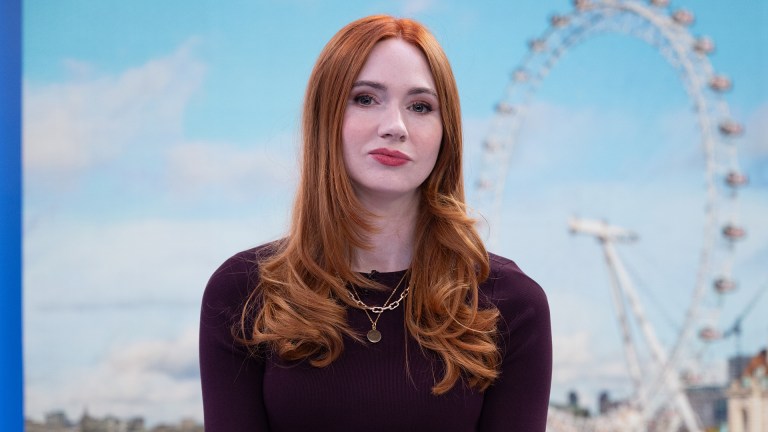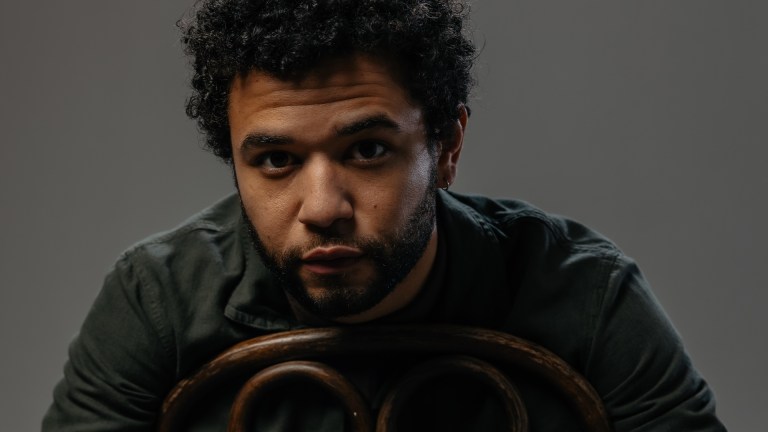A new film out this week is called Mary Shelley. I guess most of us would know she’s the woman who wrote Frankenstein, but the interesting thing about this handsome biopic of the author is how close she came to being forgotten. When the novel was first published, it was anonymously attributed, and much of literary London assumed that Percy Shelley, who did pen the introduction, was the true creator.
The film tells the story of Mary’s relationship with Shelley: a tumultuous, mostly unhappy pairing of a guileless young woman – Mary was 16 at the time – with a charismatic narcissist that led to the writing of the novel that made her name. And it’s the tenacious attempt by Mary to assert her true ownership of the book that provides the film with its best moments: at a time when the film industry is at last facing up to questions of gender diversity, this heartfelt celebration of female creativity has welcome and bracing relevance.
Playing Mary, the American actress Elle Fanning confronts the sexism of London publishers and fellow authors with a rousingly combative determination. It’s a good performance, so do director Haifaa al-Mansour and screenwriter Emma Jensen really need to telegraph quite so obviously Mary’s fighting spirit? “I have inherited,” says Fanning early on with an earnest intensity that screams Oscars clip reel, “nothing but a fire in my soul.”
Byron is played by Tom Sturridge: heavy in sybaritic excess and glam-rock eyeliner, it’s a ridiculous performance but at least he sparks the film to life
Yep, for a film that aspires to honour the literary sophistication of a pioneering writer, Mary Shelley is pretty clunky. This is costume drama at its most fussy and corseted. Set in the early 1810s, the film begins with Mary living with her widowed father William Godwin (Stephen Dillane) in a state of bohemian penury. It’s a loving but unstable environment: there are creditors at the door and Mary is the constant target of the thin-lipped disapproval of her stepmother (Joanne Froggatt).
But trouble really arrives, at a soiree at a family friend’s house in Scotland, in the form of the English actor Douglas Booth. Or I should say the strikingly handsome character he’s playing: his close-up is a Halloween mask of smouldering sensitivity and brooding vigour. Who’s that, Mary asks her friend. “Oh, that’s Shelley. He’s beautiful, isn’t he? He’s a radical poet who wants to transform society.”
